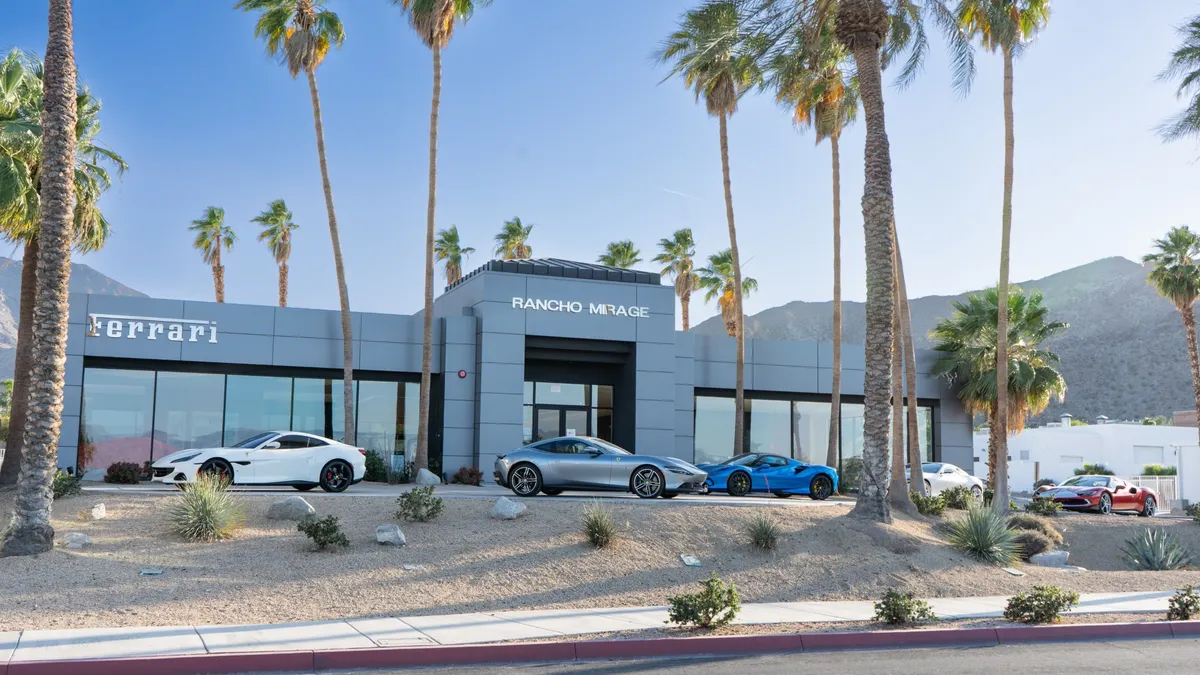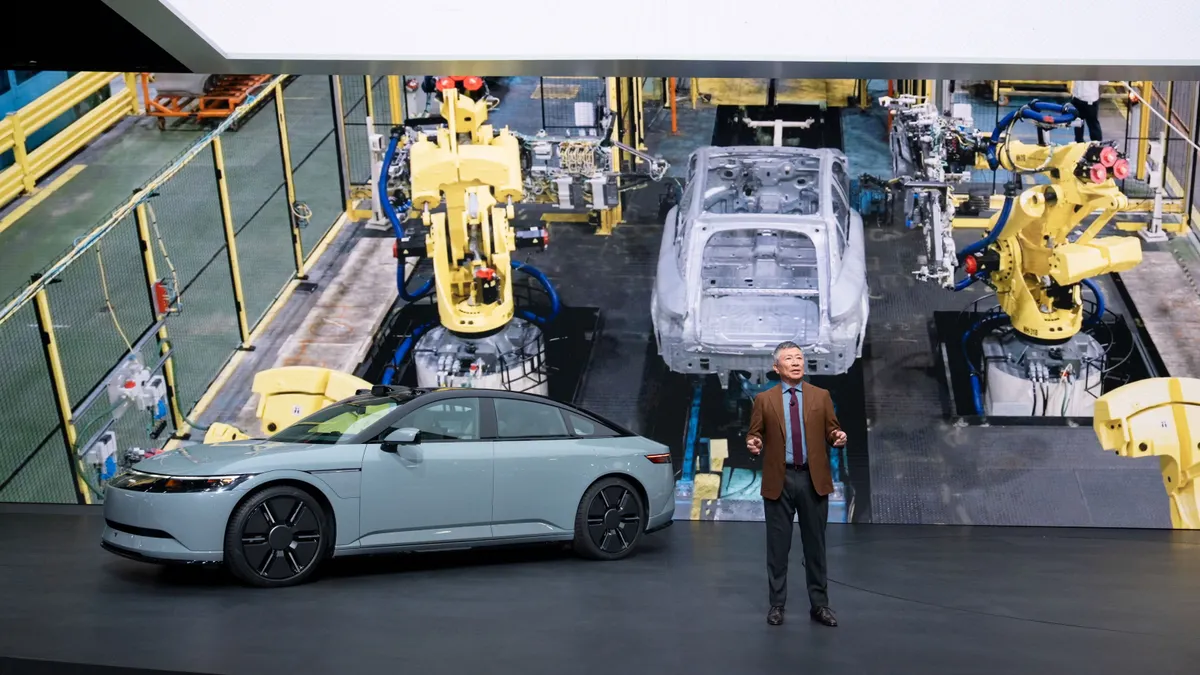Editor's note: This story is part of the WardsAuto digital archive, which may include content that was first published in print, or in different web layouts.
The National Automobile Dealers Assn. is battling government efforts to put an end to dealer reserve, an indirect-lending practice of adding to a car loan’s rate as a dealership’s compensation for arranging it.
The Consumer Financial Protection Bureau, a relatively new U.S. regulatory agency, has indicated it prefers a system of flat fees or the like, rather than interest add-ons. The bureau claims the latter might result in a form of discrimination called disparate impact.
The bureau’s stance has become a big deal for auto retailers. NADA Chairman David Westcott, a North Carolina dealer, discusses the trade group’s position on this issue and others.
WardsAuto: How does NADA see things shaping up with the CFPB’s opposition to the dealer-reserve system?
Westcott: The major concern we have with their assault on the dealer-assisted financing process is that they really appear to be uninformed. Both Republicans and Democrats in the House share that concern. That’s why we’ve asked for and fortunately got the hearings. They have a lot of misinformation that unfortunately has been circulated by some consumer-advocacy groups.
WardsAuto: You mentioned the Senate Banking Committee’s hearings and the bureau’s open forum in November. How do you think they went?
Westcott: We were pleased they had the hearings. Hopefully, that’s not the only one they will have. Hopefully (the CFPB) will continue to listen and hear more than one side of the story.
WardsAuto: Are flat fees a viable alternative to dealers adding percentage points to a consumer auto loan?
Westcott: Flat fees are an alternative. All that will do is allow dealers to steer loans in particular directions, possibly at the expense of the consumer.
For example, say one bank offers a $400 flat fee and a non-negotiable loan rate of 6% for the customer. Another bank comes in and says, “We’ll give you $500 but the rate is 7%.” The consumer loses in that case. They pay more money and they get eliminated from the financing process.
(The bureau) doesn’t want dealers to have any discretion whatsoever. Dealers compete against each other on rates. Flat fees hurt consumers. Hopefully, there are other alternatives, if they insist on a change.
WardsAuto: What is NADA’s response to government claims the dealer- reserve system may cause lending discrimination against certain groups of people?
Westcott: When I hear about the discrepancy they are talking about, it is conceivably 10 basis points, and they aren’t looking at all the things that could affect that, things like (credit) scores or the amount of a down payment or what kind of car the customer is trying to buy. A lot of factors go into determining a rate for somebody.
WardsAuto: The bureau isn’t saying exactly how they are coming up with the data being used to support alleged disparate-impact discrimination.
Westcott: They are not saying at all. They are going by ZIP code and surname. By their own admission, the margin of error for that method is 20% to 25%. Dealers don’t go out to discriminate. No.1, it’s illegal.
WardsAuto: You mentioned some people using inaccurate information to bolster their case that dealer reserve is tricking consumers out of billions of dollars in unfair costs. That seems way off. Where are critics getting their data?
Westcott: Certain people reach the bottom line of what they want to happen and then fill in the blanks above that.
Auto financing is a $780 billion industry. Yes, there is a markup. But the average markup is 0.9%. Some senators and consumer advocates say the markup is 4% to 5% to 6%. Well, that doesn’t happen. Banks have caps of 2% at the max. Someone the other day said they know of a bank with a 4% to 8% cap. I never heard of a bank like that. There is not a lot of fact-checking for some folks.
WardsAuto: What is the future of the dealer-franchise network in an online world? Has it fundamentally changed things?
Westcott: We’ve been dealing with the Internet for years. We’ve embraced it. The consumer is a lot more educated when they come in. Yeah, they now have the prices and the rebates and everything. That’s not bad.
WardsAuto: How much are dealers threatened by so-called transparency in which consumers have access to all sorts of pricing information?
Westcott: I’ve been around long enough to remember when invoices became available to consumers. That at first caused a big shock wave in the industry. It’s been going on for 20 years now.
If I go to Lowe’s, I don’t know the wholesale cost of a refrigerator. Our industry is just different in that way. You can’t do much about it. There are certain situations where there is a rush to the bottom. You just have to be cautious.
WardsAuto: Do you find at your dealerships that customers are coming in with price lists and data like that, and consequently are harder to deal with?
Westcott: I don’t know that they’re harder to deal with. They’re definitely more informed. It makes the process of buying a car a lot simpler. It takes a lot less time when the customer comes in informed.
Some things don’t change: You still have to talk about the benefits of the dealership, service and customer care.
WardsAuto You don’t sound terribly threatened by the whole transparency thing.
Westcott: Well, no. You just learn to deal with it. Fortunately or unfortunately, manufacturers have pretty much disclosed pricing on the Internet. Yes, it is challenging from a profit standpoint in a lot of cases, but you just have to work on it. Dealers are a competitive group.
WardsAuto: NADA dug in against Tesla’s business model of basically factory-direct sales of its electric vehicles. What is the latest with that? And how would you respond to people who say Tesla is carrying the banner to revolutionize the industry?
Westcott: NADA has really not weighed in per se. Tesla is a great car. By their admission, they have said that when they get to a certain point in volume, they have to have franchised dealers. The whole issue revolves around each state and their franchise laws. It is up to the individual states as to who can sell cars. We support the rights for states to determine that.
WardsAuto: What hot issue should we look for in 2014?
Westcott: The CFPB is the major issue.



















